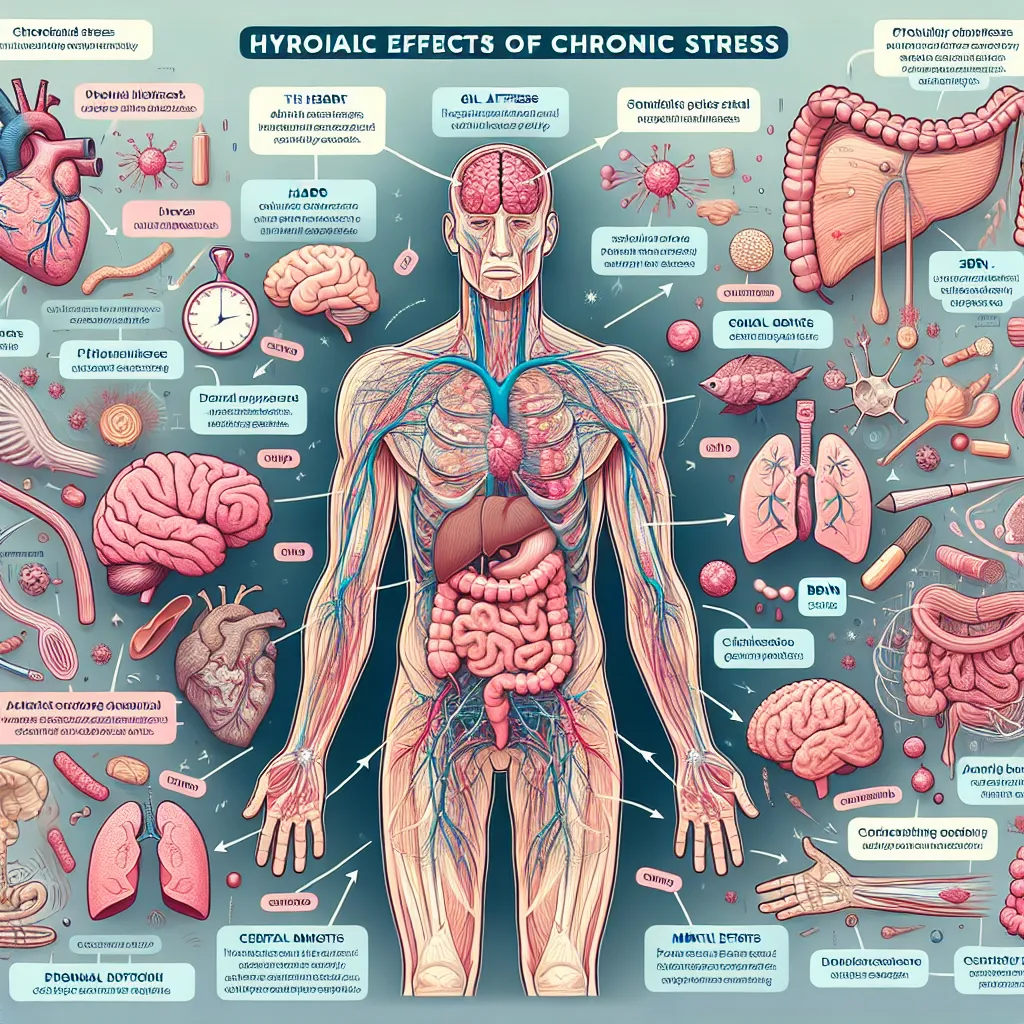Stress is a ubiquitous aspect of modern life, and its effects on health are a crucial topic in IELTS examinations. As an IELTS instructor with over two decades of experience, I can confidently say that understanding “the impact of stress on health” is not only essential for your exam success but also for your personal well-being. This article will delve into the intricacies of this topic, providing you with valuable insights and practical tips to excel in your IELTS test.

Understanding Stress and Its Health Implications
Stress, in its essence, is the body’s response to any demand or challenge. While short-term stress can be beneficial, chronic stress can have detrimental effects on both physical and mental health. Let’s break down the key components:
Physical Effects of Stress
- Cardiovascular system: Stress can increase heart rate and blood pressure, potentially leading to heart disease.
- Immune system: Prolonged stress weakens the immune system, making you more susceptible to infections.
- Digestive system: Stress can cause or exacerbate digestive issues like ulcers and irritable bowel syndrome.
- Musculoskeletal system: Tension headaches and muscle pain are common stress-related complaints.
- Endocrine system: Stress can disrupt hormone balance, affecting metabolism and reproductive health.
Mental Health Impacts
- Anxiety: Chronic stress is a major contributor to anxiety disorders.
- Depression: Prolonged stress can lead to feelings of hopelessness and depression.
- Cognitive function: Stress can impair memory, concentration, and decision-making abilities.
- Sleep disorders: Insomnia and other sleep disturbances are often linked to high stress levels.
- Mood swings: Stress can cause irritability and sudden mood changes.
IELTS Application: Vocabulary and Expressions
To effectively discuss the impact of stress on health in your IELTS exam, you need to employ a range of advanced vocabulary and expressions. Here are some examples:
- “Chronic stress can have a deleterious effect on one’s overall well-being.”
- “The repercussions of prolonged stress on the immune system are well-documented.”
- “Stress is a ubiquitous problem in modern society, permeating various aspects of life.”
- “The correlation between stress and cardiovascular diseases is irrefutable.”
- “Stress can exacerbate existing health conditions, leading to a vicious cycle of deteriorating health.”
Using these expressions will demonstrate your language proficiency and help you achieve a higher band score in the IELTS Speaking and Writing tests.
Practical Application in IELTS Tasks
IELTS Writing Task 2
In Writing Task 2, you might encounter a question like:
“Some people believe that stress is a major health problem in today’s society. To what extent do you agree or disagree?”
To tackle this question effectively, structure your essay as follows:
- Introduction: Define stress and state your position.
- Body Paragraph 1: Discuss the physical impacts of stress on health.
- Body Paragraph 2: Explore the mental health implications of chronic stress.
- Body Paragraph 3: Address counterarguments (if any) and reinforce your stance.
- Conclusion: Summarize your main points and restate your position.
Remember to use a variety of sentence structures and incorporate the advanced vocabulary mentioned earlier.
IELTS Speaking Part 2
In the Speaking test, you might be asked to talk about a time when you felt stressed. Here’s a sample answer structure:
- Describe the situation that caused stress.
- Explain how the stress affected you physically and mentally.
- Discuss how you coped with the stress.
- Reflect on what you learned from the experience.
For example: “I’d like to talk about a time when I was preparing for my final exams. The pressure was immense, and I found myself experiencing various physical symptoms such as headaches and insomnia. Mentally, I was constantly anxious and had difficulty concentrating…”
Common Mistakes to Avoid
- Overgeneralization: Avoid statements like “All stress is bad.” Instead, acknowledge that some stress can be beneficial.
- Lack of specific examples: Always provide concrete examples to support your arguments.
- Informal language: Refrain from using colloquial expressions like “stress out” or “freaking out.”
- Neglecting solutions: When discussing stress, it’s beneficial to mention coping strategies or potential solutions.
- Ignoring cultural differences: Be aware that stress manifestations and coping mechanisms can vary across cultures.
Enhancing Your IELTS Performance
To excel in IELTS when discussing the impact of stress on health:
- Practice paraphrasing key terms related to stress and health.
- Read scientific articles on stress to expand your vocabulary and understanding.
- Watch documentaries or TED Talks on stress management to improve your listening skills.
- Engage in debates or discussions about stress to enhance your speaking abilities.
- Write practice essays on various aspects of stress and health to refine your writing skills.
By incorporating these strategies, you’ll be well-prepared to tackle any IELTS task related to stress and health.
Conclusion
Understanding the impact of stress on health is crucial for both IELTS success and personal well-being. By mastering the vocabulary, concepts, and application techniques discussed in this article, you’ll be well-equipped to handle any stress-related question in your IELTS exam. Remember, the key to success lies in consistent practice and application of these skills.
We encourage you to share your thoughts and experiences regarding stress and health in the comments below. For more insights on health-related topics in IELTS, check out our article on how economic inequality impacts health outcomes. Stay tuned for more valuable IELTS preparation content!